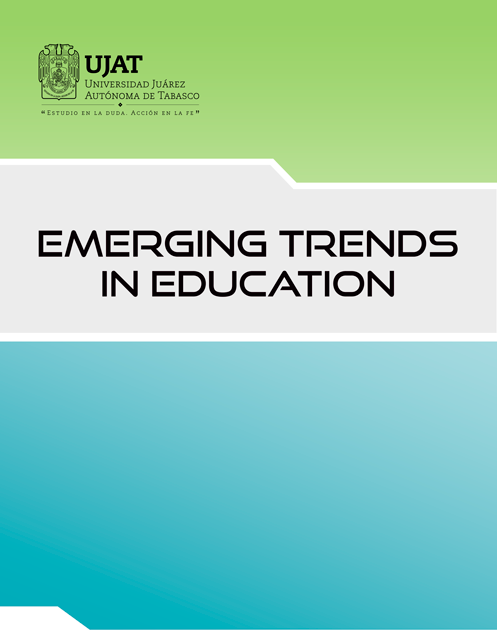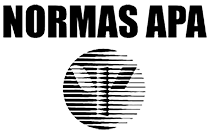Multigrade telesecundaria school pre-service teachers’ self-efficacy beliefs
DOI:
https://doi.org/10.19136/etie.a6n12.5991Keywords:
Self-efficacy beliefs, practicum, pre-service teachers, multigrade telesecundariaAbstract
The objective of this research was to analyze the beliefs and sources of self-efficacy of pre-service teacher in the context of their practices in multigrade telesecundarias schools. The approach used was qualitative and exploratory. Five practitioners were interviewed. Regarding the first objective, it was found that most of the students increased their self-efficacy beliefs as they progressed in carrying out their teaching practices. Regarding the sources of self-efficacy, it was found that these have an important influence on the practitioners' beliefs. The lack of real enactive mastery experiences intervened negatively since at the beginning of the practices the future teachers did not feel very capable. However, vicarious experiences were mostly positive and contributed to increasing self-confidence. Verbal persuasion also helped improve student performance by reinforcing appropriate behaviors and seeking to improve those that were not working well. Physiological and emotional states had a negative influence at the beginning of the practices. However, at the end of them, these improved and they become mostly positive. It is necessary to improve multigrade training in all actors and emotional management of the classroom.
References
Anzano, S., Vázquez, S. y Liesa, M. (2022). Invisibilidad de la escuela rural en la formación de profesores. Revista Electrónica de Investigación Educativa, 24, e27, 1-14. https://doi.org/10.24320/redie.2022.24.e27.3974
Backhoff, E., Pérez, J. y Contreras, R. (2015). Las telesecundarias en México: resultados de TALIS 2013. Documento de la conferencia presentada en el Segundo Congreso Latinoamericano de Medición y Evaluación Educativa. Instituto Nacional para la Evaluación de la Educación. México. https://www.oecd.org/education/school/Mexico-TALIS-2013_es.pdf
Bailey, R. (2019). Self-efficacy, self-regulation, social support, and outcomes expectations for daily physical activity in adults with chronic stroke: A descriptive, exploratory study. Occup Ther Health Care.33(2): 129–141. https://doi.org/10.1080/07380577.2018.1558326
Bandura, A. (1997). Self-efficacy, the exercise of control. New York: Worth Publishers.
Barrett, N., Cowen, J., Toma, E. y Troske, S. (2015). Working with what they have: Professional development as a reform strategy in rural schools. Journal of Research in Rural Education, 30(10), 1-18. https://eric.ed.gov/?id=EJ1071136
Braun, V. y Clarke, V. (2022). Thematic Analysis. Sage.
Brown, J. D. y Coombe, C. (Eds.) (2015). The Cambridge guide to research in Language teaching and learning. UK: Cambridge University Press.
Brown, R. (2019). Exploratory study of self-efficacy among K-12 teachers in Puerto Rico. Psicologías, 3, 58–88. https://revistas.upr.edu/index.php/psicologias/article/view/17843v
Campos, J. (2016). Conocimiento profesional de los profesores: formación de profesores en dos agrupamientos de escuelas. Revista Electrónica Interuniversitaria de Formación del Profesorado,19(2), 273-287. https://doi.org/10.6018/reifop.19.2.255681
Cano R. A. y Bustamente, S. A. (2017). Telesecundarias de contexto indígena y la formación inicial de sus docentes. Sinéctica. Revista Electrónica de Educación, 49, 1-17. https://bit.ly/43z1zIT
Creswell, J. W. y Creswell, J. D. (2018). Research design: qualitative, quantitative, and mixed methods approaches. Thousand Oaks, CA: Sage.
Diario de la Federación. (2022). Anexo 10 del acuerdo 160822. https://www.dof.gob.mx/2022/SEP/ANEXO_10_DEL_ACUERDO_16_08_22.pdf
El-Abd, M. y Chaaban, Y. (2020). The role of vicarious experiences in the development of pre-service teachers’ classroom management self-efficacy beliefs. International Journal of Early Years Education. https://doi.org/10.1080/09669760.2020.1779669
Gale, J., Alemdar, M., Cappelli, C. y Morris, D. (2021). A mixed methods study of self-efficacy, the sources of self-efficacy, and teaching experience. Frontiers in Education. 6, 1-16. https://doi.org/10.3389/feduc.2021.750599
Gregersen, T. (2020). Dynamic properties of language anxiety. Studies in Second Language Learning and Teaching. 10(1), 1-11. https://doi.org/10.14746/ssllt.2020.10.1.4
Hernández, E. y González, S. (2020). Análisis de datos cualitativos a través del sistema de tablas y matrices en investigación educativa. Revista Electrónica Interuniversitaria de Formación del Profesorado, 23(3), 115-132. https://revistas.um.es/reifop/article/view/435021
Hernández, L. F. (2022). Evolución del nivel de autoeficacia académica percibida en estudiantes universitarios mexicanos del medio rural. Revista Brasileira de Educação do Campo, 7, 1-20. https://doi.org/10.20873/uft.rbec.e13450
Hernández, R., Fernández-Collado, C. y Baptista, P. (2006). Metodología de la investigación (5ª. ed.) México: McGraw-Hill.
Shmelkes, S. y Ávila, G. (2019). La educación multigrado en México. INEE https://www.inee.edu.mx/wp-content/uploads/2019/01/La-Educacio%CC%81n-Multigrado_BIS.pdf
Ji, Y., Oubibi, M., Chen, S., Yin, Y. y Zhou. Y. (2022). Pre-service teachers’ emotional experience: Characteristics, dynamics, and sources amid the teaching practicum. Frontiers in Psychology, 13, 1-15. https://doi.org/10.3389/fpsyg.2022.968513
Juárez, D. (2017). Percepciones de docentes rurales multigrado en México y El Salvador. Sinéctica, 49, 1-16. https://bit.ly/47lhHRI
Leyva, Y. y Guerra, M. (2019). Las prácticas de docentes que trabajan en educación indígena, escuelas de organización multigrado, telesecundarias y telebachilleratos comunitarios en México. México: Instituto Nacional para la Evaluación de la Educación. https://bit.ly/3rMjOO2
Lorelli, S., Nowell, J. M., Norris, White, D. E., y Moules, N. J. (2017). Thematic analysis: Striving to meet the trustworthiness criteria. International Journal of Qualitative Methods, 16 (1), 1-15. https://doi.org/10.1177/1609406917733847
Maldonado, G. (2011). La autoeficacia docente percibida en el profesorado de los colegios de la Red San Francisco Javier y su relación con otras variables. (Tesis de maestría sin publicar). Universidad Rafael Landívar, Guatemala.
Mauri, T.; Clara, M.; Colomina, R. y Onrubia, J. (2015). Naturaleza de la interacción en procesos de reflexión conjunta sobre situaciones de la práctica por estudiantes de maestro. Papeles de Trabajo sobre Cultura, Educación y Desarrollo Humano, 11(2),105-109. https://bit.ly/3quphsj
McNeill, C. (2018). Exploratory research: 3 reasons to conduct more of it. https://bit.ly/455fI1Y
Merriam, S. B. (1985). The case study in educational research: A review of selected literature. Journal of Educational Thought, 19(3), 204-17. https://doi.org/10.11575/jet.v19i3.44167
Murillo, L. D.; Ramos, D. Y.; García, I., y Sotelo, M. A. (2020). Estrategias educativas inclusivas y su relación con la autoeficacia de docentes en formación. Revista Actualidades Investigativas en Educación, 20(1), 1-25. https://doi.org/10.15517/aie.v20i1.40060
Murrieta-Loyo, G. y Reyes-Cruz, M. R. (2019). Experiencias de desempeño y creencias de autoeficacia en profesores de lenguas extranjeras. Revista electrónica de Investigación, 52, 1-16. https://doi.org/10.31391/S2007-7033(2019)0052-010
Rodriguez, B. A., Bautista, M. F. y Servín, O. O. (2021). La formación continua de profesores multigrado: una aproximación al contexto veracruzano. IE Revista de Investigación Educativa de la REDIECH, 12, 1-19. https://www.rediech.org/ojs/2017/index.php/ie_rie_rediech/article/view/1194
Samuelsson, M., Samuelsson, J., Thorsten, A. (2022). Simulation training-a boost for pre-service teachers’ efficacy beliefs. Computers and Education Open, 3, 1-6. https://doi.org/10.1016/j.caeo.2022.100074
Sánchez-Guardiola, C., Aguaded, E.M., Rodríguez-Sabiote, C. (2021). Content validation of a semi-structured interview to analyze the management of suffering. International Journal of Environmental Research and Public Health. 18(21), 1-24. https://doi.org/10.3390/ijerph182111393
Saunders, B., Sim, J., Kingstone, T. et al. (2018). Saturation in qualitative research: exploring its conceptualization and operationalization. Quality and Quantity, 52, 1893–1907. https://doi.org/10.1007/s11135-017-0574-8
Wu, Z. y Chen, J. (2018). Teachers’ emotional experience: insights from Hong Kong primary schools. Asia Pacific Education Review. 19, 531–541. https://doi.org/10.1007/s12564-018-9553-6
Yada, A., Tolvanen, A., Malinen, O., Imai-Matsumura, K., Shimada, H., Koike, R., Savolainen, H. (2019). Teachers' self-efficacy and the sources of efficacy: A cross-cultural investigation in Japan and Finland. Teaching and Teacher Education, 81, 13-24. https://doi.org/10.1016/j.tate.2019.01.014
Downloads
Published
Issue
Section
License
Copyright (c) 2024 Emerging Trends in Education

This work is licensed under a Creative Commons Attribution-NonCommercial-NoDerivatives 4.0 International License.





























